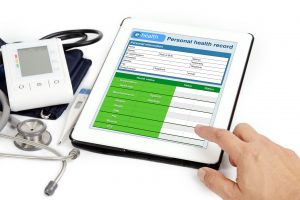An Overview of Health Informatics
Health informatics is the application of information technology to healthcare delivery, research and education. It is used in various settings including hospitals, clinics and other clinical facilities, as well as public health departments and government agencies.
Given the rapid pace of technological change in healthcare and the increasing use of technology to diagnose and treat patients, there is a growing need for health informatics professionals. It’s a field that’s expected to continue expanding as more healthcare organizations seek to harness the power of data. The continued use of health informatics has the potential to increase efficiency, improve patient care quality and lower costs in the long run.
Some examples of how administrators employ health informatics include:
- Electronic health records (EHRs): EHRs allow medical professionals to digitally store, retrieve and share patient information electronically. They can also help patients view their own medical information online or submit requests for appointments or prescription refills online.
- Telemedicine: Telemedicine refers to using telecommunications technology for remote diagnosis and treatment of patients by video or telephone links between doctors and patients in separate locations.
- Patient portals: Patient portals are electronic platforms that enable patients to access their own medical records and communicate with their doctors. They may also include features like appointment scheduling or payment options.
Health informatics can help improve the quality and reduce the cost of medical care by making it easier for doctors to share information with one another, allowing patients to access their own records online and enabling healthcare providers to communicate more efficiently with their patients.
How to Start a Career in Health Informatics
A career in health informatics usually begins with a bachelor’s degree in a related field, such as computer science or information systems. Many health informatics professionals have also earned graduate degrees, especially those who work in research and development positions at hospitals or medical schools. In some cases, certification may be required for certain jobs.
Health informatics professionals often have a background in medical terminology and computer science, but some employers may also look for candidates with experience in project management, business intelligence or database administration. Health informatics professionals must also have effective communication skills to work closely with doctors, administrators and other staff members.
What Are Some Examples of Careers in Health Informatics?
A career in health informatics can provide professionals with the satisfaction that they are making a difference in improving the quality of patient care, such as helping patients find information about their condition, providing valuable insights into how providers can enhance their efficiency and creating new applications to help streamline workflows from hospital admissions to billing.
There are a variety of entry-level jobs for health informatics professionals, including:
Clinical Documentation Specialist
A clinical documentation specialist is someone who uses health informatics to help doctors, nurses and other medical professionals document their observations and treatment plans. In addition to ensuring that the information is accurate and complete, a clinical documentation specialist may also work with physicians to design forms that are easier to use.
Since almost all healthcare organizations today assemble an abundance of documentation, the role of a clinical documentation specialist is vital. It’s not just about collecting and storing data — it’s also about making sure that the information is easy to find, understand and use for those who need it.
Electronic Medical Record Keeper
Working with electronic medical records means that you’re helping doctors and other medical professionals keep track of their patients’ information. You may also be responsible for creating reports that physicians use to make decisions about treatment.
You can use health informatics principles to ensure that the information in medical records is accurate and complete. You’re also responsible for making sure that the medical record contains all the information needed to make an accurate diagnosis.
Clinical Informatics Specialist
A clinical informatics specialist is a mid-level position that you can move into as part of your career path. It involves constructing and explaining data-driven reports and visualizations that help doctors, nurses and other medical professionals improve patient care and clinical workflows. You may work in an IT department, as part of a hospital’s clinical research team or in a medical software company.
You’ll be expected to have a solid understanding of clinical research, coding and billing as well as how these factors can be applied to data analysis. In addition, clinical informatics specialists need to be able to translate their findings so that doctors and other medical professionals can understand them.
Clinical Systems Analyst
Clinical systems analysts work to provide high-level systems analysis and design for medical software systems. They’re also responsible for managing the implementation of these systems and ensuring that they meet the needs of their users.
Healthcare organizations depend on clinical systems analysts to help them develop the technology they need to run smoothly and efficiently. These professionals are expected to have expertise in both clinical and technical aspects of healthcare information systems, as well as an understanding of how these systems can be applied across various aspects of care.
Pursuing a Career in Health Informatics
If you choose to specialize in the health informatics field, you can gain a greater understanding of how healthcare technology is driving the evolution of healthcare and its impact on the quality of patient care. The field offers many different areas to specialize in, from coding and database administration to project management and information security.
As technology continues to evolve, so will health informatics. USF Health’s online Master’s in Health Informatics is designed to prepare students for careers in this industry and provide a solid foundation for those who wish to pursue graduate work in health informatics.
**National long-term projections may not reflect local and/or short-term economic or job conditions, and do not guarantee actual job growth. Information provided is not intended to represent a complete list of hiring companies or job titles, and program options do not guarantee career or salary outcomes. Students should conduct independent research for specific employment information.




